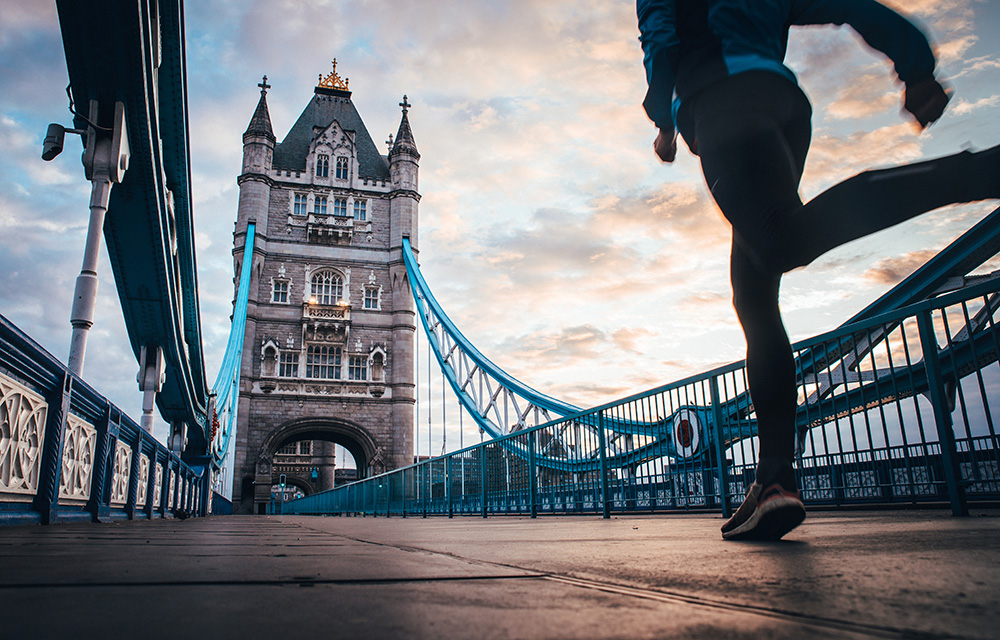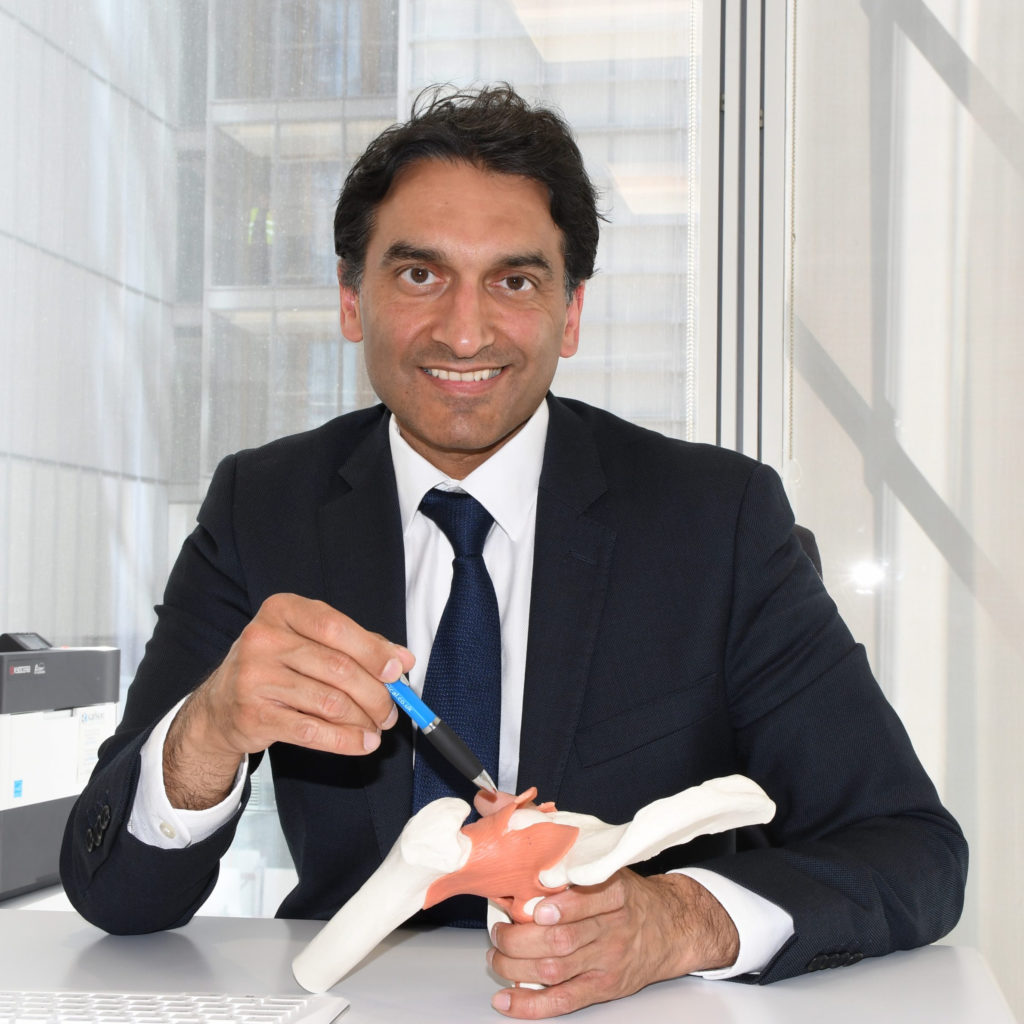BLOG
Marathon Training – Hip & Knee Pain
By Mr Vipin Asopa, Consultant Hip & Knee Surgeon, May 2024

After the London Marathon organisers announced that a record-breaking 840,000 people have entered the ballot for the 2025 marathon, it’s clear that more and more of the UK are upping their running game. And it’s not just the London Marathon. There are many half marathons and marathons taking place all around the country over the upcoming months.
If you’re training for a marathon, injury prevention will be an important consideration. As you increase your distances in the build up to your race, you will no doubt be aware of any changing niggles and pains. I explored the topic of injury prevention for runners in a previous blog: https://ortho-surgery.uk/index.php/running-injuries-blog/.
During training, it’s common for marathon runners to experience some type of muscle pain as you increase distances or run on different terrains. This could be:
- Delayed-onset muscle soreness (DOMS)
This is described as, “muscle pain that begins after you’ve worked out. It normally starts a day or two after a workout. You won’t feel DOMS during a workout.” [https://www.healthline.com/health/doms]
- Acute muscle soreness
“Acute muscle soreness is that burning sensation you feel in a muscle during a workout due to a quick build-up of the build-up of metabolites during intense exercise. It usually disappears as soon as or shortly after you stop exercising.” [https://www.healthline.com/health/doms]
POSSIBLE CAUSES OF HIP OR KNEE PAIN
However, it is important to note that this is of course not the only reason for pain during or after training. Focusing specifically on the hip and knee area, this blog lists the potential reasons a runner can experience pain in these areas when training for a race.
HIP PAIN
If you develop hip pain while running, the first question to ask yourself is, where is the pain? Is it in the groin, the outside of the hip, or buttock/low back area? Depending on which area the pain is originating in, there are various possible causes and reasons for this pain.
- Pain in the outside of the hip
If the pain is on the outside of the hip, it could be due to gluteal tendinopathy or bursitis, which is an inflammation of the bursae – a small sacs of fluid that cushion the hip joint. - Buttock pain
This could originate from degenerative changes in the lumbar spine or sacroiliac joints. It could also be from problems related to the hip joint (ball and socket). - Groin pain
If there is pain in the groin, the hip related causes include degenerative changes or a stress response which could lead to a fracture.
If you develop hip pain after running and it does not settle, consider seeking a specialist hip review.
KNEE PAIN
Pain in the knee may be in a particular area of the knee such as at the front, back or outside of the knee. Here are some of the reasons a runner may experience knee pain:
- Pain in the front of the knee
If there is pain originating in the front of the knee, this could be due to the fat pad becoming inflamed. This becomes worse when you run either up-hill or down-hill. - Pain on the outside of the knee
Iliotibial band syndrome is inflammation and pain on the outside of the knee.
These are just some examples of possibilities of what could be causing these pains. For pain that does not ease, you can book an appointment for tests and examination.
Disclaimer: medical information within this blog is for informational purposes only. This is not a medical assessment or diagnosis. An appointment should be booked to seek a medical assessment, diagnosis or treatment for your individual needs.

Mr Vipin Asopa, PhD, FRCS (Tr & Orth), MBChB, BSc (hons)
Specialist Consultant Hip and Knee Surgeon in London, with a particular focus on hip pain, knee pain and sports injuries.
Mr Asopa performs numerous surgical procedures including hip and knee joint replacements, arthroscopy, ACL surgery, as well as treating arthritis, ligament injuries, trochanteric pain and more.
To book an appointment with Mr Asopa:
Call: +44 (0) 794 319 1592 | Email: admin@ortho-surgery.uk